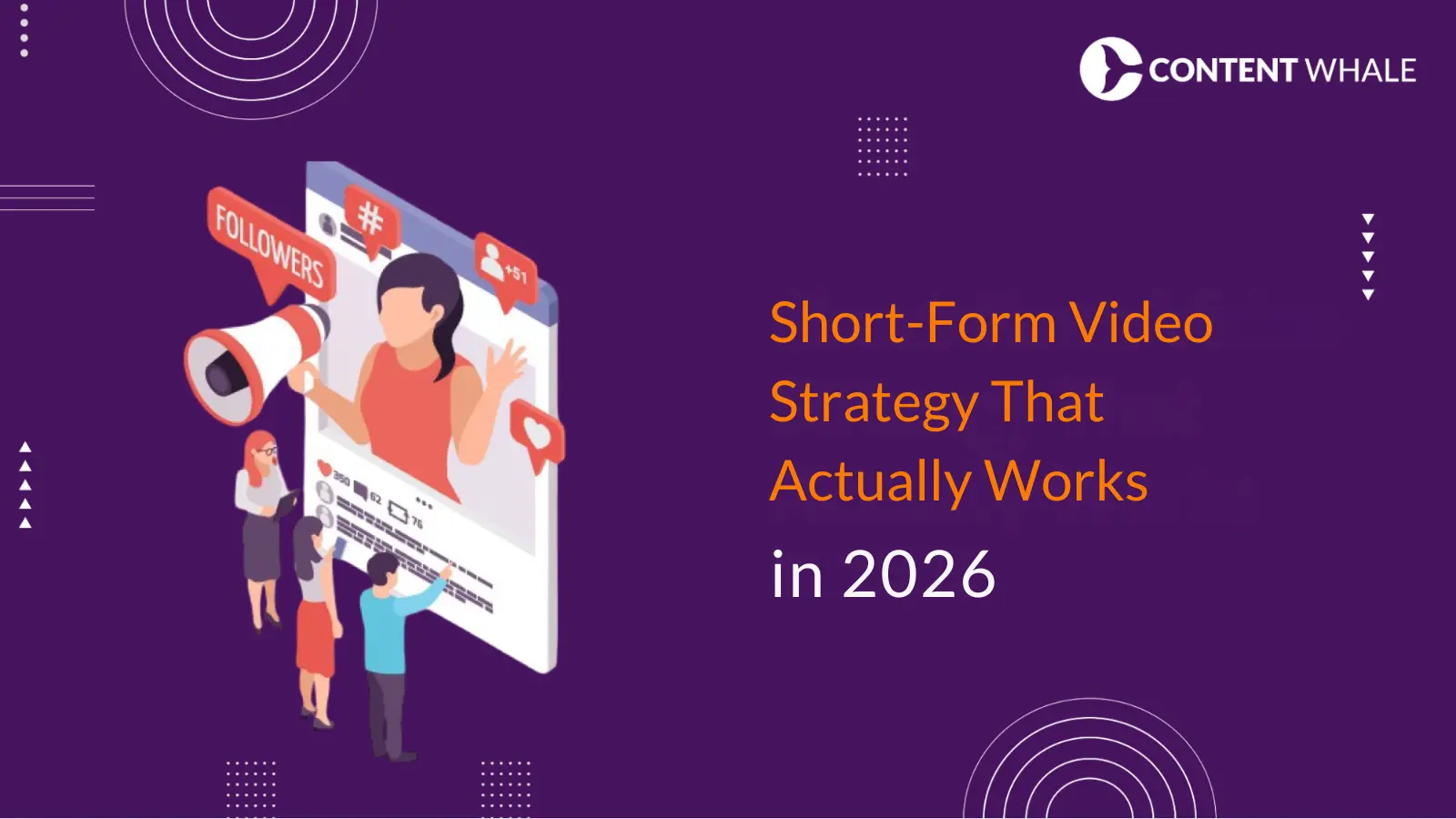Cutting through the noise for implementing a B2B content marketing strategy requires a strategic approach, and content marketing sits at the forefront of this strategy. But simply creating content isn’t enough. To truly succeed, you need a well-defined B2B content marketing strategy — a roadmap that guides your efforts towards achieving specific goals.
This comprehensive guide delves into the essential steps involved in crafting a winning B2B content marketing strategy. We’ll explore everything from audience research and goal setting to content creation, distribution, and measurement. By the end, you’ll be equipped with the knowledge and tools to develop a content marketing plan that drives real results for your B2B organization.
Understanding Your Audience: The Foundation of Success
Before you start creating content, research your target audience. Who are the decision-makers you’re trying to reach? What are their pain points and challenges? What kind of information do they consume? Developing buyer personas is a valuable exercise that helps you understand these aspects.
Conduct thorough audience research through surveys, interviews, and industry reports. Leverage social media listening tools to glean insights into online conversations relevant to your niche. Analyze website traffic data to determine what content resonates most with your audience.
Setting SMART Goals: Measurable Milestones for Your Strategy
Once you understand your audience, it’s time to define your content marketing goals. Vague objectives like “increase brand awareness” won’t be enough to track progress.
Instead, focus on setting SMART goals: Specific, Measurable, Achievable, Relevant, and Time-Bound. Here are some examples of SMART goals in B2B content marketing:
- Increase website traffic from qualified leads by 20% within six months.
- Generate 100 qualified leads through gated content downloads in the next quarter.
- Improve brand awareness by achieving a 15% increase in social media engagement within a year.
Charting the Course: Choosing the Right Content Formats
The B2B content marketing landscape offers a diverse range of formats to choose from. Selecting the right ones depends on your audience’s preferences and the stage of the buyer’s journey you’re targeting.
Here’s a breakdown of some popular B2B content formats:
- Blog Posts: Ideal for sharing industry insights, thought leadership pieces, and educational content.
- Ebooks and White Papers: In-depth reports that establish expertise and generate leads.
- Case Studies: Showcase the success you’ve achieved with other clients.
- Infographics: Visually appealing summaries of complex data and trends.
- Videos: Explain complex topics in an engaging way and build brand trust through interviews and demonstrations.
- Webinars: Offer a platform for in-depth discussions and audience interaction.
Experiment with different formats and track their performance to see what resonates best with your target audience.
Building Topical Authority: Owning Your Niche
In the competitive B2B space, establishing yourself as a thought leader is crucial. One way to achieve this is by building topical authority. Focus on creating content that demonstrates your expertise on specific industry topics relevant to your ideal customer.
Here are some tips for building topical authority:
- Publish high-quality, well-researched content consistently.
- Target relevant keywords with high search intent.
- Earn backlinks from reputable websites in your industry.
- Become a contributor to industry publications and blogs.
- Participate in online communities and discussions.
Distribution Channels: Getting Your Content Seen
Creating great content is just half the battle. You also need a robust distribution strategy to ensure it reaches your target audience.
Here are some effective B2B content distribution channels:
- Social Media: Leverage platforms like LinkedIn and Twitter to share your content and connect with industry influencers.
- Email Marketing: Build an email list and nurture leads with targeted content campaigns.
- Industry Publications and Blogs: Pitch guest articles to gain exposure to a wider audience.
- Paid Advertising: Utilize platforms like LinkedIn Ads to target your ideal customer with specific content pieces.
- Search Engine Optimization (SEO): Optimize your content for relevant keywords to improve organic search visibility.
Content Promotion: Fueling the Fire
Crafting stellar content is just the first step. To truly ignite engagement and drive results, you need a robust content promotion strategy. Here are some key tactics to consider:
- Social Media Powerhouse: Leverage the power of social media platforms like LinkedIn and Twitter. Share your content consistently, participate in relevant conversations, and engage with influencers in your industry. Utilize social media scheduling tools to streamline the process and ensure regular posting.
- Email Marketing Magic: Email remains a powerful B2B marketing channel. Segment your email list based on buyer personas and interests, then tailor your content promotion messages accordingly. Create eye-catching email subject lines that entice recipients to open your emails and click through to your content.
- Industry Outreach: Build relationships with industry publications and bloggers in your niche. Pitch guest articles or collaborate on co-authored content to gain exposure to their audience. This not only promotes your content but also establishes you as an expert in your field.
- Paid Advertising with Precision: Utilize paid advertising platforms like LinkedIn Ads and Google Ads to target specific audience segments with laser focus. Consider promoting high-performing content pieces or gated content that captures leads. Remember to track the performance of your paid campaigns and adjust your strategies accordingly.
- SEO Optimization for Visibility: Search Engine Optimization (SEO) plays a crucial role in content promotion. Conduct thorough keyword research and optimize your content for relevant terms that your target audience is likely to search for. Regularly update your content and build backlinks from high-authority websites to improve your search ranking and organic reach.
Bonus Tip: Repurpose your content! Extract key takeaways from your blog posts to create engaging social media posts. Turn webinars into bite-sized video snippets for wider distribution. By repurposing your content across various formats, you can maximize its reach and value.
Content Measurement: Tracking Success and Making Adjustments
Content marketing is an ongoing process, and it’s essential to track your progress to measure success and identify areas for improvement. Define key performance indicators (KPIs) that align with your overall content marketing goals.
Some common B2B content marketing KPIs include:
- Website traffic: Monitor the number of visitors your content attracts, particularly qualified leads from your target audience.
- Lead generation: Track the number of leads generated through content downloads, form submissions, and email signups.
- Engagement metrics: Analyze social media shares, comments, and video views to gauge audience engagement with your content.
- Conversion rates: Track how many website visitors convert into paying customers after interacting with your content.
By regularly monitoring these KPIs, you can gain valuable insights into the effectiveness of your content marketing strategy. Analyze your data and adjust your approach accordingly. For example, if a particular content format or distribution channel is underperforming, consider reallocating resources towards strategies that are generating better results.
Conclusion: Building a Sustainable Content Engine
A successful B2B content marketing strategy is an ongoing journey, not a one-time project. By consistently creating valuable content, strategically promoting it, and measuring its performance, you can establish a content engine that drives brand awareness, generates leads, and ultimately fuels your B2B sales pipeline.
Remember, the key lies in understanding your audience, creating high-quality content that resonates with their needs, and promoting it effectively through the right channels. By following these steps and constantly refining your approach, you can transform your B2B content marketing strategy into a powerful tool for achieving your business goals.





